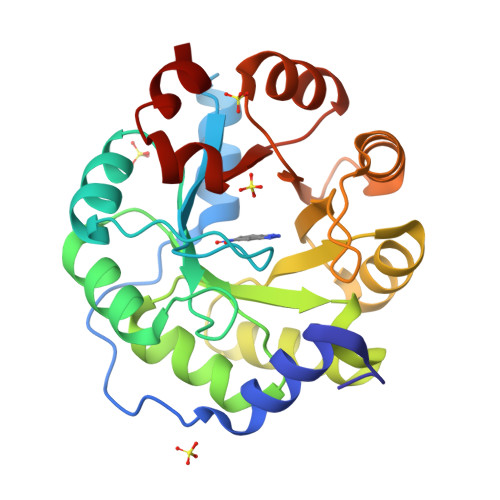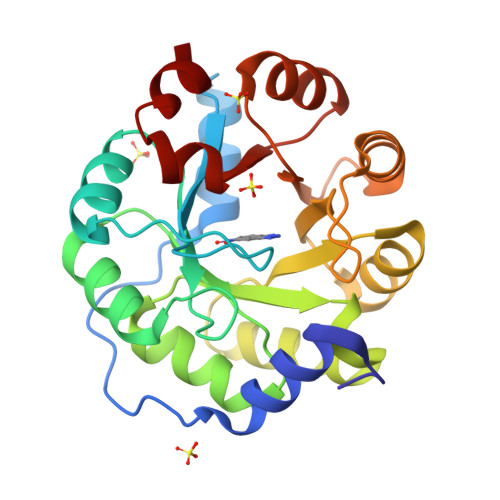Emergence of a Negative Activation Heat Capacity during Evolution of a Designed Enzyme.
Bunzel, H.A., Kries, H., Marchetti, L., Zeymer, C., Mittl, P.R.E., Mulholland, A.J., Hilvert, D.(2019) J Am Chem Soc 141: 11745-11748
- PubMed: 31282667
- DOI: https://doi.org/10.1021/jacs.9b02731
- Primary Citation of Related Structures:
6NW4 - PubMed Abstract:
Temperature influences the reaction kinetics and evolvability of all enzymes. To understand how evolution shapes the thermodynamic drivers of catalysis, we optimized the modest activity of a computationally designed enzyme for an elementary proton-transfer reaction by nearly 4 orders of magnitude over 9 rounds of mutagenesis and screening. As theorized for primordial enzymes, the catalytic effects of the original design were almost entirely enthalpic in origin, as were the rate enhancements achieved by laboratory evolution. However, the large reductions in Δ H ⧧ were partially offset by a decrease in T Δ S ⧧ and unexpectedly accompanied by a negative activation heat capacity, signaling strong adaptation to the operating temperature. These findings echo reports of temperature-dependent activation parameters for highly evolved natural enzymes and are relevant to explanations of enzymatic catalysis and adaptation to changing thermal environments.
Organizational Affiliation:
Laboratory of Organic Chemistry , ETH Zurich , 8093 Zurich , Switzerland.


















